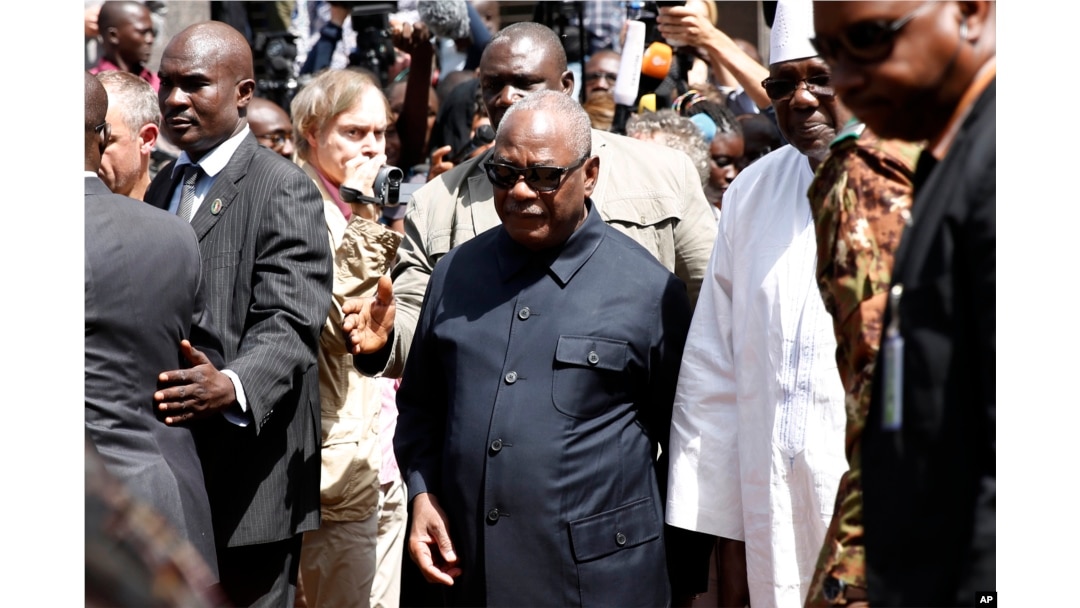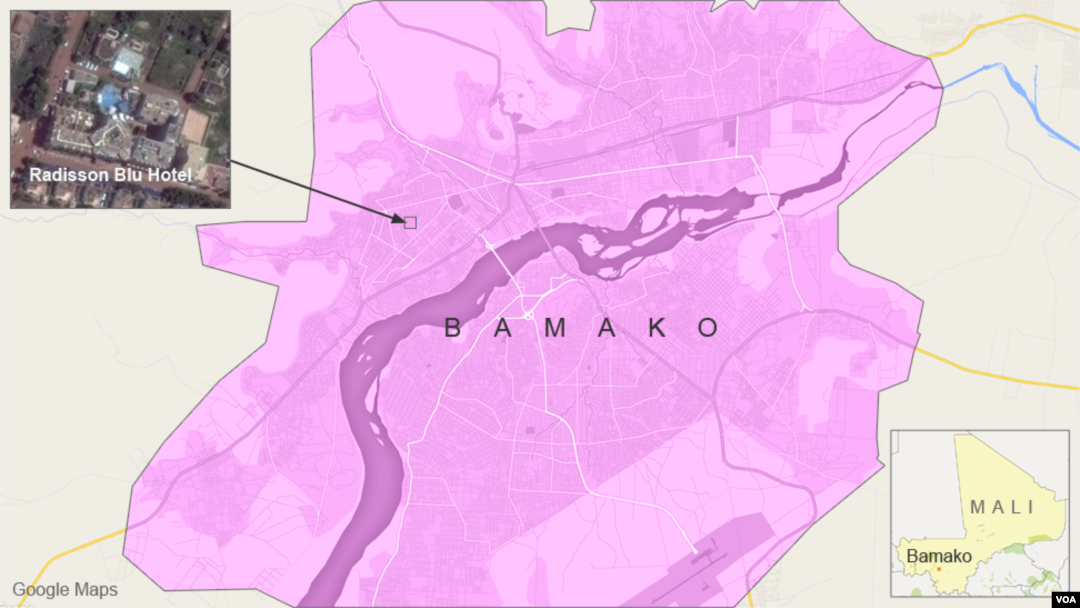When armed gunmen barged into the Radisson Blu in Bamako last week it was not just an attack on a luxurious hotel in the Malian capital. The target the attackers chose symbolizes regional and international interests in Mali, a move that threatens foreign investments, stability and peace.
Radisson Blu was considered one of the safest hotels in Bamako. Among its guests were diplomats, presidents and foreign businessmen looking to invest in Mali. At the time of the attack a group of Chinese investors from the China Railway Company building the railway from Bamako to Dakar were staying at the hotel. The flight staff from Air France and Turkish Airlines also was there.
Political analyst Issa N'diaye said the Radisson was the perfect target for multiple reasons, one being the many foreigners who frequently stay there.
The Radisson, where international investors meet and business deals are signed, will make foreign investors think twice before they invest in Mali N'diaye added.

Malian President Ibrahim Boubacar Keita returns to his car after addressing reporters outside the Radisson Blu hotel in Bamako, Mali, Nov. 21, 2015.
Claim of responsibility
Two West African militant groups — al-Qaida in the Islamic Maghreb (AQIM) and its affiliate al-Mourabitoun, claimed joint responsibility for the attack.
Al-Mourabitoun, the creation of former al-Qaida leader Mokhtar Belmokhtar, took to Twitter and called the attack an act against Mali and France. The group claimed a similar attack on a hotel in Sevare, a garrison town a couple of hundred kilometers north of Bamako.
Seventeen people were killed in the August attack on that hotel, which frequented was by staff with the United Nations mission in Mali.
While al-Mourabitoun has the capacity to commit such an attack, most analysts in Mali point to another Islamist extremist group.

The Radisson Blu hotel, in Bamako, Mali
Ansar Dine, headed by prominent Tuareg Iyad Ag Ghaly, recently has expanded its territory by cooperating with the Macina Liberation Movement, active in the country’s center and south.
The United States and France consider Ansar Dine a terrorist movement. It has close ties with al-Qaida in the Islamic Maghreb, AQIM, and it was excluded from the peace negotiations between the government and northern rebel groups.
Behind the group’s radical Islam, which would impose Sharia law in all of Mali, are political and financial interests, said professor Hamidoun Magassa, who studies Islam and terrorism in Mali.
He said group leader Iyad has been involved in every rebellion in Mali since the 1980s. He is an influential voice in the north, and behind him you have AQIM, which in fact controls all the extremist groups, Magassa added.
The attack was a power demonstration by the attacker and its allies, said N’Diaye. He said he fears more attacks will follow.
This was the second attack in Bamako targeting Western interests by Islamist extremists this year. In March, an attack killed five people at a restaurant in Hippodrome, a neighborhood where many NGO’s and foreign businesses have their offices.
People stand near the Radisson hotel after al-Qaida launched a deadly attack on guests, in Bamako, Mali, Nov. 20, 2015.


